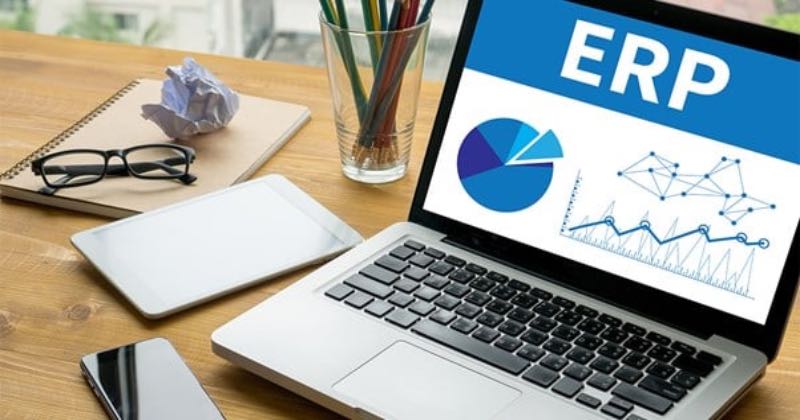Enterprise Resource Planning (ERP) is a business management software that integrates various key processes of an organization into one unified system. ERP helps businesses centralize operations like finance, human resources, inventory, and sales, enhancing efficiency and enabling better data-driven decision-making. In this article, we will explore what ERP is, its evolution, and why it’s essential for businesses today.
What is Enterprise Resource Planning (ERP)?
Enterprise Resource Planning (ERP) is a software solution that allows businesses to manage and integrate their internal processes using a single centralized platform. This means departments like sales, accounting, HR, and logistics can access the same data in real-time, eliminating data silos and improving collaboration across the organization.
In simple terms, ERP acts as a “central hub” that connects different parts of the business, enabling seamless operations. In addition to improving internal communication, ERP systems automate repetitive tasks, reduce errors, and streamline decision-making processes.
Evolution of ERP
ERP systems have come a long way since their inception in the 1960s when they were first introduced as Material Requirements Planning (MRP) tools to manage inventory. By the 1970s, MRP software started integrating production and inventory management processes.
Over the years, ERP software expanded to include more business functions, from financial management to sales and supply chain management. Today, ERP solutions are comprehensive platforms that provide a holistic view of business operations, from inventory management to customer relations.
Key Features of ERP Systems
To understand why ERP is a vital tool for businesses, let’s look at some of its key features:
- Data Centralization: ERP systems consolidate all business-critical information into a single platform, allowing seamless data flow across departments.
- Process Automation: ERP automates tasks like invoicing, payroll processing, and report generation, minimizing manual work and reducing errors.
- Real-time Reporting: ERP solutions provide real-time reporting and analytics, giving managers and executives up-to-date insights into the business’s performance.
- Scalability: Modern ERP systems are designed to grow with your business, adapting to its changing needs.
- Customization: Many ERP platforms offer customizable modules, allowing businesses to choose features that best suit their requirements.
Benefits of Implementing ERP in Your Business
Implementing an ERP system offers numerous benefits for businesses of all sizes:
- Increased Efficiency: By automating repetitive tasks and centralizing data, ERP systems significantly boost employee productivity and reduce response times.
- Improved Decision-Making: With access to accurate, real-time data, business leaders can make more informed decisions that enhance performance.
- Cost Savings: While implementing an ERP system requires an initial investment, the long-term savings from reduced errors, streamlined processes, and better resource management make it worth the cost.
- Enhanced Customer Satisfaction: ERP systems enable businesses to respond quickly to customer inquiries, optimize order fulfillment, and deliver better overall service.
The Future of ERP
The rise of cloud computing has revolutionized ERP systems, making them more accessible and affordable for small and medium-sized businesses. Cloud-based ERP systems—often referred to as Software-as-a-Service (SaaS) ERP—eliminate the need for expensive on-premise infrastructure, allowing businesses to implement ERP quickly and at a lower cost.
In addition to cloud computing, the integration of artificial intelligence (AI) and machine learning is transforming ERP systems. These advanced technologies enable businesses to perform predictive analytics, automate complex tasks, and make proactive decisions based on real-time data insights.
Why Your Business Needs ERP
In today’s competitive business environment, ERP systems have become indispensable for companies that want to streamline operations, improve efficiency, and reduce costs. Whether you’re a small business or a large enterprise, ERP provides the tools to integrate various departments, from finance and sales to inventory and marketing.
By centralizing data, ERP allows employees and managers to gain visibility into different areas of the business, enabling quick, data-driven decision-making. The automation of routine tasks frees up your team to focus on strategic initiatives, enhancing both internal productivity and customer satisfaction.




